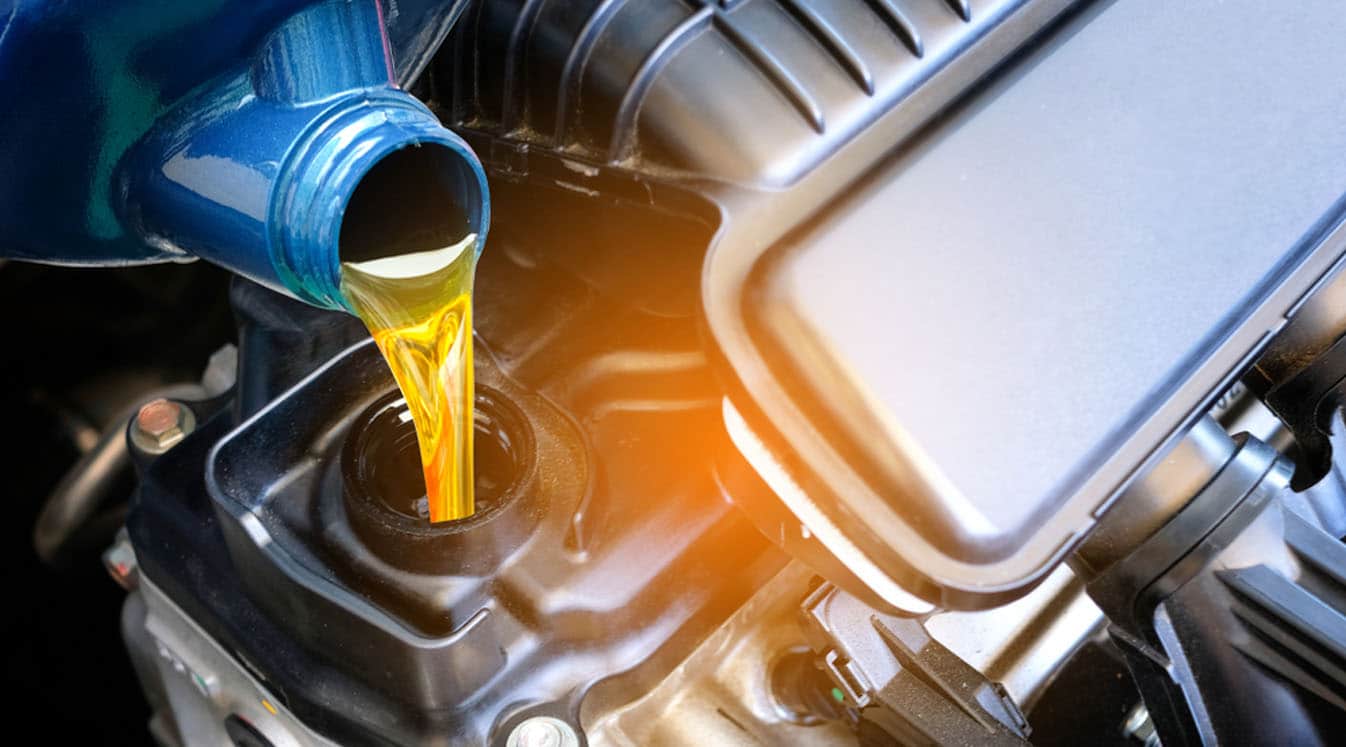You should change engine oil every 5,000 to 7,500 miles or as recommended by your vehicle’s manufacturer. Regular oil changes are crucial for maintaining the health of your engine and preventing costly repairs.
Neglecting to change your oil can lead to buildup of sludge, reduced fuel efficiency, and damage to engine parts. Proper engine maintenance is essential for keeping your car running smoothly and reliably. Oil changes are one of the most important routine maintenance tasks, but there are often many questions about when and how often to change your oil.
We will explore the factors that affect how often you should change your oil, as well as some tips for choosing the right type of oil for your vehicle. By following these guidelines, you can help ensure that your car stays in top condition for years to come.

Credit: cardosystems.com
The Great Debate: Frequency Of Oil Changes
The frequency of oil changes has been a subject of much debate in the automotive world. Old rules suggested changing the oil every 3,000 miles or three months, but new standards have emerged. Many manufacturers now recommend longer intervals, often ranging from 5,000 to 10,000 miles. It’s important to follow the specific manufacturer recommendations for your vehicle, taking into account factors such as driving habits, climate, and the type of oil used. Regular oil changes are crucial for maintaining the health of your engine and ensuring optimal performance. By adhering to the updated guidelines, you can not only save time and money, but also contribute to environmental sustainability by reducing the amount of waste oil.

The Importance Of Regular Oil Changes
The regular change of engine oil is crucial for the health and performance of your vehicle. Regular oil changes impact the overall health and performance of your vehicle. Regular changes maintain the efficiency and durability of the engine, ensuring its long-term reliability.

Credit: www.goldeagle.com
Understanding Oil Change Frequency
When it comes to determining the frequency of oil changes, several factors come into play. Mileage is often used as a primary indicator, but time also plays a crucial role. In addition to these factors, the type of driving you do, such as stop-and-go city driving or long highway trips, can impact the frequency of oil changes. Moreover, the age of your vehicle and the manufacturer’s recommendations should be taken into consideration when deciding how often to change your engine oil.
If you typically drive short distances or in severe conditions, it’s advisable to change your oil more frequently. On the other hand, if you mostly drive long distances, you may be able to extend the time between oil changes. Always refer to your vehicle’s manual and consider consulting with a mechanic to determine the best oil change schedule for your specific driving habits and vehicle.
Synthetic Vs. Mineral Oil
Synthetic vs. Mineral Oil: Choosing between synthetic and mineral oil largely depends on the characteristics and differences between the two. Synthetic oils are known for their higher quality and better performance, while mineral oils are more traditional and less expensive. When it comes to change frequency, synthetic oil generally lasts longer and can go for up to 10,000 to 15,000 miles between changes. On the other hand, mineral oil typically needs to be changed every 3,000 to 5,000 miles. The decision to use synthetic or mineral oil can significantly impact the frequency of oil changes, so it’s essential to consider the specific characteristics and differences between the two when determining the optimal oil change schedule.
Mileage Vs. Time: What Matters More?
When it comes to changing engine oil, it’s important to consider both mileage and time. While many people focus solely on the mileage driven, the role of time in oil degradation should not be overlooked.
Understanding mileage guidelines is essential for determining how often to change your engine oil. Different car manufacturers and oil brands may have varying recommendations, so it’s crucial to refer to your vehicle’s manual for specific guidance.
Additionally, the role of time in oil degradation cannot be ignored. Even if you haven’t reached the recommended mileage for an oil change, it’s important to consider the time that has passed since the last oil change. Oil can deteriorate over time due to factors such as temperature fluctuations and exposure to contaminants.
Regular oil analysis can help assess the condition of your oil and determine if it needs to be changed sooner than the recommended mileage interval. By considering both mileage and time, you can ensure that your engine is properly lubricated and protected.

Conventional Vs. Synthetic Oil
When it comes to conventional vs. synthetic oil, the frequency of changing engine oil depends on the type of oil used. Conventional oil typically needs to be changed every 3,000-5,000 miles, while synthetic oil can last up to 10,000-15,000 miles before requiring a change.
It’s essential to follow the manufacturer’s recommendations for the specific type of oil and driving conditions.
| Conventional vs. Synthetic Oil |
| Key Differences |
| When it comes to choosing between conventional and synthetic oil, it’s important to understand the key differences that can affect how often you should change your engine oil. |
| Conventional oil is derived from crude oil and undergoes minimal processing. It is less expensive but may require more frequent oil changes, typically every 3,000 to 5,000 miles. |
| Synthetic oil, on the other hand, is chemically engineered to provide better performance and protection. It is more expensive but can last longer, often up to 7,500 to 10,000 miles between oil changes. |
| The choice between conventional and synthetic oil affects the frequency of oil changes. If you opt for conventional oil, you may need to change it more frequently, while synthetic oil allows for longer intervals between changes. For Details, Click Here |
Manufacturer’s Recommendations Still Apply
Although visual and performance cues are important, always follow manufacturer oil-change intervals (typically 5,000–7,500 miles with conventional oil, up to 10,000 or even 15,000 with modern synthetics).
Summary Checklist
| Cue | Inspect When | Action |
|---|---|---|
| Oil level on dipstick | Monthly or every few weeks | Top-up or change if consistently low |
| Oil color & texture | During dipstick check | Change if dark, gritty, sludgy |
| Oil pressure/check-engine light | When illuminated | Check level & oil; service immediately |
| Engine noise | At startup, idle, or acceleration | Change oil; diagnose if noise persists |
| Acceleration & idling | Ongoing driving | Change oil; inspect engine if issues remain |
| Exhaust smoke | Anytime unusual smoke appears | Change oil & investigate combustion system |
| Burning smell | When entering cabin or engine area | Inspect for leaks; change oil |
| Fuel efficiency drop | During fuel stop analysis | Change oil; maintenance may improve MPG |
| Engine overheating | Gauge reads high | Check oil; flush and change if needed |
Navigating Your Vehicle’s Manual |
|
When it comes to changing your engine oil, it is important to follow the manufacturer’s recommendations. Your vehicle’s manual provides specific guidelines on when and how often you should change the oil. These recommendations can vary based on the make and model of your car. Brand-specific guidelines can also provide additional information on oil change intervals. Some manufacturers may suggest changing the oil every 3,000 miles, while others may recommend longer intervals, such as 5,000 or even 7,500 miles. It is important to consult your vehicle’s manual or contact the manufacturer directly to determine the appropriate oil change frequency for your specific car. |
Effects Of Driving Habits On Oil Life
Regularly changing your engine oil is essential for the longevity of your vehicle, but how often should you do it? The answer depends on various factors such as driving habits, mileage, and the type of oil used.
Driving habits have a significant impact on oil life. High mileage and short trips with frequent idle time can reduce the lifespan of your engine oil. High mileage causes the engine to work harder, generating more heat and contaminating the oil. Short trips with frequent idle time do not allow the engine to reach its optimal operating temperature, causing moisture to accumulate in the oil.
| Driving Habits | Oil Change Frequency |
|---|---|
| High Mileage | Every 3,000 to 5,000 miles |
| Short Trips with Frequent Idle Time | Every 3,000 miles or every 3 months |
It is important to follow the manufacturer’s recommendations for oil change intervals, but also keep in mind your driving habits and adjust accordingly. Regularly changing your engine oil will ensure the proper lubrication of the engine components and protect against wear and tear.
Signs Your Car Needs An Oil Change
| Signs Your Car Needs an Oil Change |
|---|
|
Visual and performance cues can indicate when it’s time to change your car’s engine oil. Check the oil level and condition regularly to ensure it stays within the recommended range and doesn’t look dirty or gritty. Signs of low oil level or dirty oil include illuminated oil pressure or check engine light, engine knocking or ticking sounds, decreased fuel efficiency, and excessive exhaust smoke. Performance issues like sluggish acceleration, rough idling, and stalling can also indicate a need for an oil change. It’s important to follow the manufacturer’s recommended oil change intervals, which can vary depending on factors like driving habits, climate, and vehicle age. |
Visual Cues: What to Check & Why
-
Oil Level on Dipstick: Always check the dipstick—it should remain between the minimum and maximum marks. Dropping below indicates either the need for a top-up or a possible leak.
-
Oil Appearance – Color & Texture: Fresh oil is translucent amber. Dark, gritty, or sludge-like oil means it’s dirty and losing its lubricating capacity—even if the level looks fine.
-
Oil Leaks: Puddles or spots under the car suggest a leak—runoff accelerates engine wear and indicates immediate intervention is needed.
Dashboard Warnings & Smells
4. Oil Pressure or Check Engine Light: If these illuminate, it often means low oil pressure or degraded oil. Don’t ignore—failure to act can lead to severe engine damage.
- Burnt Oil Smell Inside Cabin: A strong burnt-oil odor may indicate internal oil leaks or overheating—clear sign to inspect and likely replace your oil.
Performance Cues: What Your Engine Might Be Saying
6. Engine Noise: Knocking, Ticking, Rumbling When oil is too thin or degraded, metal parts rub together, causing ticking, knocking, or grinding. These sounds demand immediate attention.
-
Sluggish Acceleration & Rough Idling: Dirty or low oil increases engine friction, leading to hesitations in acceleration, rough idle, and even stalling.
-
Excessive Exhaust Smoke: Blue or gray smoke often means oil is burning in the combustion chamber—typically due to old oil, oil consumption, or worn components.
-
Engine Overheating: Oil plays a role in cooling. When old or insufficient, it fails to manage engine heat, potentially triggering overheating warnings .
-
Decreased Fuel Efficiency: Increased engine friction from dirty or low oil means the engine has to work harder, consuming more fuel .
The Cost Factor: Budgeting For Oil Changes
The cost factor is a crucial aspect of budgeting for oil changes. The average cost of an oil change varies depending on several factors, including the make and model of your vehicle, the type of oil used, and the location of the service provider. Generally, the cost of a conventional oil change ranges from $25 to $50, while synthetic oil changes can cost anywhere from $45 to $70. DIY oil changes can save you money, with the average cost of oil and filter ranging from $15 to $30. However, if you don’t have the necessary tools or expertise, it may be best to leave it to the professionals, which can cost up to $100 or more for a synthetic oil change. By understanding the average costs and variations, you can make an informed decision on whether to opt for DIY or professional services.
Environmental Impact And Waste Management
To minimize environmental impact and manage waste effectively, it’s important to change engine oil at regular intervals. As a general rule, most manufacturers recommend changing the oil every 5,000 to 7,500 miles, but it’s advisable to consult your car’s manual for specific guidelines.
Regular oil changes help reduce pollution and keep the engine running smoothly.
| When it comes to the environmental impact and waste management of changing engine oil, it is crucial to consider eco-friendly disposal practices. Re-refined oils provide a sustainable option for oil disposal. These oils are produced by reprocessing used oils, removing impurities and contaminants, and restoring them to a usable state. By choosing re-refined oils, you contribute to reducing the demand for crude oil extraction and minimize the amount of waste oil that ends up in landfills or water sources. Additionally, re-refined oils have been found to meet or exceed the performance standards of virgin oils. This means that you can maintain the quality and longevity of your engine while also making an environmentally responsible choice. By adopting eco-friendly disposal practices and opting for re-refined oils, you can play a part in preserving the environment for future generations. |
Diy Oil Change: Pros And Cons
Performing a DIY oil change can save you money and give you a sense of accomplishment. However, it is important to have the necessary tools and knowledge before attempting this task. You will need a socket wrench, an oil filter wrench, a drain pan, and a new oil filter. It is crucial to dispose of the used oil properly, as it is harmful to the environment.
Opting for professional service has its advantages. Professional mechanics have the expertise and experience to ensure that the oil change is done correctly. They also have access to high-quality oils and filters. If you are unsure about the process or lack the necessary tools, it is best to leave it to the professionals.
When deciding whether to do a DIY oil change or opt for professional service, consider your comfort level, time availability, and budget. Whichever option you choose, regular oil changes are essential to maintain the health and performance of your engine.
Making The Decision: When To Change Your Oil
When it comes to determining how often you should change your engine oil, there is no one-size-fits-all answer. It depends on various factors such as the type of vehicle you drive, your driving habits, and the type of oil you use. Keeping records of your oil changes and staying informed about your vehicle’s specific requirements can help you personalize your oil change schedule.
By regularly checking your vehicle’s owner’s manual, you can find recommendations from the manufacturer regarding the ideal oil change intervals. Some manufacturers suggest changing the oil every 3,000 miles, while others may recommend longer intervals of up to 10,000 miles. Additionally, synthetic oils typically last longer than conventional oils, so their change intervals may be longer.
Monitoring your driving habits is also crucial. If you frequently drive in severe conditions such as extreme temperatures or dusty environments, you may need to change your oil more frequently. Similarly, if you often engage in stop-and-go city driving or towing heavy loads, it can put more stress on your engine and require more frequent oil changes.
Ultimately, the key is to find the balance between following the manufacturer’s recommendations, considering your driving habits, and regularly checking the oil’s condition. By personalizing your oil change schedule, you can ensure optimal engine performance and prolong the life of your vehicle.

Extending The Life Of Your Engine Oil
When it comes to extending the life of your engine oil, there are a few key factors to consider. Firstly, practicing effective driving habits can significantly reduce the strain on your oil. Avoid excessive idling and aggressive driving, as these behaviors can cause the oil to break down faster.
In addition to driving practices, regular maintenance beyond oil changes is crucial. This includes checking and replacing the oil filter regularly, as a clogged filter can reduce the effectiveness of your oil. It is also important to keep an eye on other fluids, such as coolant and transmission fluid, as they can impact the performance of your engine oil.
By following these guidelines and adhering to the manufacturer’s recommendations, you can ensure that your engine oil lasts longer, providing optimal lubrication and protection for your engine.

Credit: resource-center.meineke.com
Read More: How to Change Engine Oil And Filter John Deere 1026R: Quick Guide
Frequently Asked Questions
How Often Do I Really Need An Oil Change?
You should change your engine oil approximately every 3,000 to 5,000 miles or every 3 to 6 months, depending on your driving habits and the type of oil you use. Regular oil changes help keep your engine running smoothly and extend its lifespan.
Is It Necessary To Change Engine Oil Every 6 Months?
Yes, it is necessary to change engine oil every 6 months to maintain optimal engine performance and prolong its lifespan.
Can You Go 2 Years Without Changing Oil?
No, it is not recommended to go 2 years without changing oil in your car. Almost no automaker suggests leaving oil in the crankcase for more than a year, irrespective of mileage. It is best to change your car’s oil twice a year, even if you don’t drive often.
Is It Okay To Change Oil Once A Year?
No, it is not recommended to change oil only once a year. Most automakers suggest changing oil every 7,500 to 10,000 miles or at least once a year, whichever comes first. Regular oil changes help in maintaining the performance and longevity of your engine.
Neglecting this maintenance can cause engine damage and costly repairs.
Conclusion
It’s essential to change your engine oil as per the manufacturer’s recommendations to keep your vehicle running smoothly. Regular oil changes help to maintain the engine’s performance and prolong its lifespan. By staying proactive with oil changes, you can avoid costly repairs and ensure the longevity of your car.
